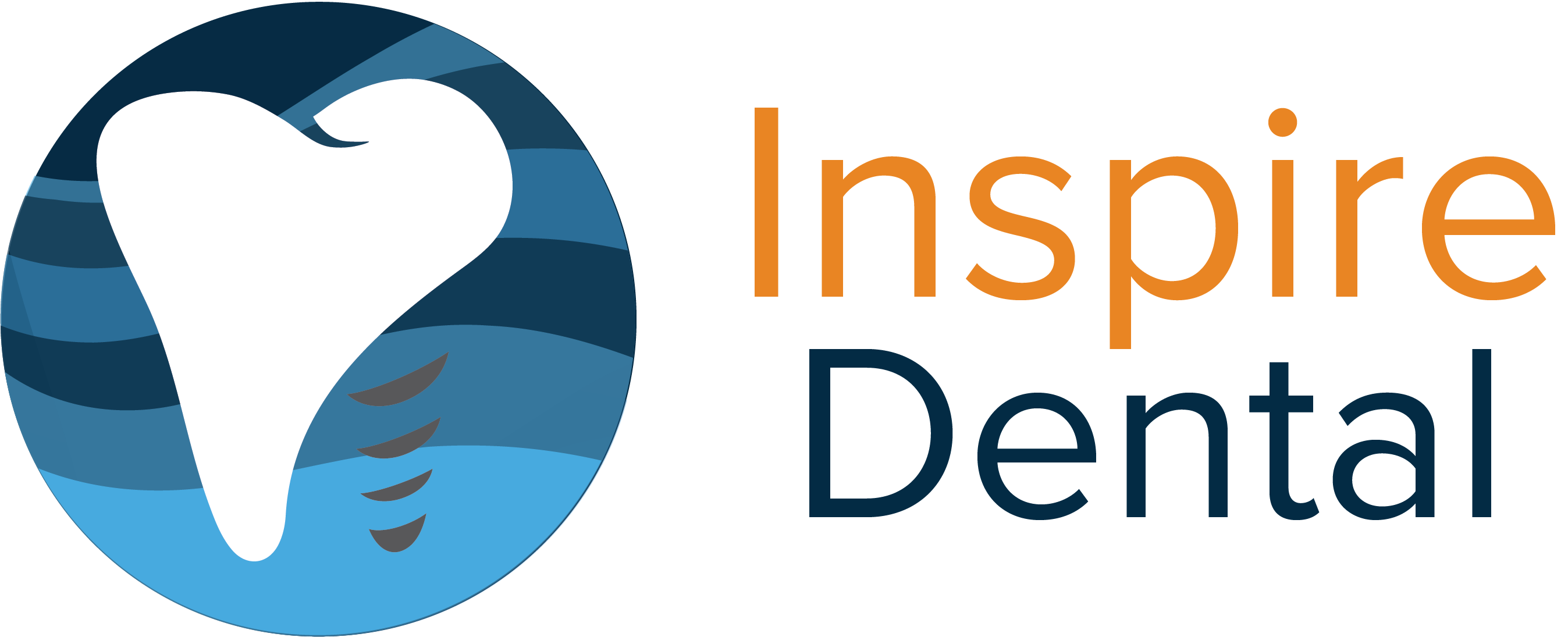Nutritional counseling is an essential service offered at Ottumwa Dentist to help patients improve their oral health through dietary choices. This personalized guidance focuses on how food and drink impact teeth and gums, providing practical advice for maintaining a healthy mouth.
Key Takeaways:
- Nutritional counseling at Ottumwa Dentist addresses the link between diet and oral health
- Personalized advice helps patients make informed food choices for better dental outcomes
- Guidance covers reducing sugar intake, increasing calcium-rich foods, and proper hydration
- Counseling can help prevent tooth decay, gum disease, and other oral health issues
- Nutritional advice is tailored to each patient’s unique needs and lifestyle
Understanding Nutritional Counseling for Dental Health

Nutritional counseling in dentistry is a specialized service that helps patients understand how their diet affects their oral health. At Ottumwa Dentist, we recognize that what you eat and drink plays a big role in the health of your teeth and gums. Our counseling sessions aim to educate patients on making smart food choices that support strong teeth and healthy gums.
The Connection Between Diet and Oral Health
Your diet has a direct impact on your oral health. Foods and drinks high in sugar or acid can lead to tooth decay and enamel erosion. On the other hand, a diet rich in certain nutrients can strengthen teeth and promote healthy gums. Our nutritional counseling sessions at Ottumwa Dentist explain these connections in detail, helping patients see how their food choices affect their smiles.
Common Dietary Issues Affecting Dental Health
Many patients are unaware of how their eating habits might be harming their teeth. Frequent snacking, sugary drinks, and acidic foods are common culprits that can lead to dental problems. During nutritional counseling, we identify these issues and provide practical solutions to address them. This might include suggesting healthier alternatives or discussing better timing for consuming certain foods.
Benefits of Nutritional Counseling for Dental Patients

Nutritional counseling offers several benefits for dental patients in Ottumwa. By understanding the relationship between diet and oral health, patients can take proactive steps to prevent dental issues and maintain a healthy smile.
Preventing Tooth Decay and Gum Disease
One of the primary goals of nutritional counseling is to help prevent tooth decay and gum disease. By learning which foods promote oral health and which ones to limit, patients can significantly reduce their risk of cavities and periodontal issues. This preventive approach can save time and money on dental treatments in the long run.
Improving Overall Oral Health
Nutritional counseling doesn’t just focus on preventing problems; it also aims to improve overall oral health. A well-balanced diet that supports strong teeth and healthy gums can lead to fresher breath, reduced inflammation, and a more attractive smile. Patients often report feeling more confident about their oral health after implementing the dietary advice provided during counseling sessions.
What to Expect During a Nutritional Counseling Session

When you come to Ottumwa Dentist for nutritional counseling, you can expect a personalized and informative experience. Our team takes the time to understand your current diet, lifestyle, and any specific oral health concerns you may have.
Assessing Your Current Diet
The first step in nutritional counseling is to assess your current eating habits. We’ll ask you to describe a typical day’s meals and snacks, including beverages. This helps us identify areas where your diet might be impacting your oral health, both positively and negatively.
Creating a Personalized Nutrition Plan
Based on the assessment of your diet and your oral health needs, we’ll work with you to create a personalized nutrition plan. This plan will include specific recommendations for foods to eat more of, foods to limit, and strategies for making healthier choices. We understand that changing eating habits can be challenging, so we focus on realistic and sustainable changes.
Key Dietary Recommendations for Oral Health
While each patient’s nutritional plan is unique, some general recommendations benefit most people’s oral health. These guidelines form the foundation of our nutritional counseling at Ottumwa Dentist.
Reducing Sugar Intake
Limiting sugar consumption is crucial for preventing tooth decay. We’ll help you identify hidden sources of sugar in your diet and suggest low-sugar alternatives. This doesn’t mean you can never enjoy sweet treats, but we’ll discuss how to consume them in a way that minimizes risk to your teeth.
Increasing Calcium and Vitamin D
Calcium and vitamin D are essential for strong teeth and bones. We’ll recommend food sources rich in these nutrients and discuss whether supplements might be beneficial for you. This is especially important for patients at risk of osteoporosis or those with a history of weak enamel.
Promoting Hydration
Proper hydration is vital for oral health. Water helps rinse away food particles and bacteria, and it supports saliva production. We’ll discuss your current fluid intake and offer tips for staying well-hydrated throughout the day.
Nutritional Strategies for Specific Dental Issues
Different dental issues may require specific nutritional approaches. At Ottumwa Dentist, we tailor our advice to address your unique oral health challenges.
Diet for Sensitive Teeth
If you suffer from sensitive teeth, certain foods and drinks can trigger discomfort. We’ll provide guidance on which items to avoid and suggest alternatives that won’t irritate your teeth. We may also recommend foods that can help strengthen enamel and reduce sensitivity over time.
Nutrition for Gum Health
Gum health is closely linked to diet. Foods rich in vitamin C and antioxidants can support gum tissue health. We’ll help you incorporate these beneficial foods into your diet and discuss how they can help prevent or manage gum disease.
Implementing Dietary Changes for Better Oral Health
Knowing what to eat is only part of the equation; putting that knowledge into practice is equally important. At Ottumwa Dentist, we provide practical strategies to help you implement dietary changes successfully.
Meal Planning for Oral Health
We’ll work with you to develop meal plans that support your oral health goals. This might include planning balanced meals that incorporate tooth-friendly foods and strategically timing snacks to minimize acid exposure to your teeth.
Smart Snacking Strategies
Snacking can have a big impact on oral health. We’ll discuss smart snacking choices that satisfy hunger without harming your teeth. This might include suggestions for crunchy vegetables that clean teeth naturally or protein-rich snacks that don’t promote tooth decay.
The Role of Supplements in Dental Nutrition
While a balanced diet is the best source of nutrients, sometimes supplements can play a role in supporting oral health. At Ottumwa Dentist, we discuss whether supplements might be beneficial for your specific situation.
When Supplements May Be Necessary
In some cases, dietary restrictions or health conditions may make it difficult to get all necessary nutrients from food alone. We’ll help you determine if supplements like calcium, vitamin D, or others might be helpful for your oral health.
Choosing the Right Supplements
If supplements are recommended, we’ll guide you in choosing high-quality products that are most likely to benefit your oral health. We’ll also discuss proper dosages and potential interactions with any medications you’re taking.
Nutritional Counseling for Special Populations
Different life stages and health conditions can affect nutritional needs for oral health. Our nutritional counseling at Ottumwa Dentist takes these factors into account.
Nutrition for Pregnant Women
Pregnancy can increase the risk of certain dental issues. We provide specialized nutritional advice for pregnant women to support both maternal and fetal health while protecting teeth and gums.
Dietary Guidance for Older Adults
As we age, nutritional needs change, and certain dental issues become more common. Our counseling for older adults focuses on maintaining oral health while addressing common concerns like dry mouth or difficulty chewing.
Monitoring Progress and Adjusting Recommendations
Nutritional counseling is an ongoing process. At Ottumwa Dentist, we schedule follow-up appointments to monitor your progress and make adjustments as needed.
Follow-up Appointments
During follow-up appointments, we’ll discuss any challenges you’ve faced in implementing dietary changes and celebrate your successes. We may perform oral exams to assess how your oral health has improved since starting the nutritional plan.
Adapting to Changing Needs
As your oral health improves or new challenges arise, we’ll adapt your nutritional plan accordingly. This ensures that your dietary choices continue to support your oral health goals over time.
Integrating Nutritional Counseling with Overall Dental Care
At Ottumwa Dentist, we believe in a comprehensive approach to oral health. Nutritional counseling is just one part of our overall care strategy.
Combining Diet with Proper Oral Hygiene
While a healthy diet is crucial, it must be combined with proper oral hygiene practices. We’ll reinforce the importance of regular brushing, flossing, and dental check-ups alongside your nutritional plan.
Coordinating with Other Dental Treatments
If you’re undergoing other dental treatments, we’ll ensure that your nutritional plan supports these procedures. For example, we might adjust recommendations to promote healing after oral surgery or to support enamel remineralization during cavity treatment.
The Impact of Nutritional Counseling on Long-term Oral Health
Nutritional counseling can have a significant positive impact on your oral health over time. Many patients at Ottumwa Dentist have experienced notable improvements in their dental check-ups after implementing dietary changes.
Success Stories from Ottumwa Dentist Patients
We’ve seen numerous success stories from patients who have embraced nutritional counseling. From reduced cavity formation to improved gum health, these results demonstrate the power of diet in maintaining a healthy smile.
Long-term Benefits of Dietary Changes
The benefits of nutritional counseling extend beyond immediate improvements. By establishing healthy eating habits, you’re setting the foundation for lifelong oral health. This can lead to fewer dental problems, lower treatment costs, and greater confidence in your smile as you age.
Nutritional Counseling and Overall Health
It’s important to note that the benefits of nutritional counseling for oral health often extend to overall health as well. Many of the dietary recommendations that support healthy teeth and gums also promote general wellness.
The Mouth-Body Connection
Research has shown strong links between oral health and systemic health. By improving your diet for dental reasons, you may also be reducing your risk of other health issues like heart disease and diabetes.
Promoting a Holistic Approach to Health
At Ottumwa Dentist, we encourage a holistic view of health. Our nutritional counseling not only aims to improve your oral health but also supports your overall well-being.
| Nutrient | Oral Health Benefit | Food Sources |
|---|---|---|
| Calcium | Strengthens teeth and bones | Dairy products, leafy greens, fortified plant milks |
| Vitamin D | Aids calcium absorption | Fatty fish, egg yolks, fortified foods |
| Vitamin C | Supports gum health | Citrus fruits, berries, bell peppers |
| Phosphorus | Helps rebuild tooth enamel | Meat, poultry, fish, eggs |
| Vitamin A | Promotes saliva production | Sweet potatoes, carrots, spinach |
| Dietary Habit | Impact on Oral Health | Recommended Changes |
|---|---|---|
| High sugar intake | Increases risk of tooth decay | Limit sugary snacks and drinks |
| Frequent snacking | Prolongs acid exposure to teeth | Reduce snacking frequency, rinse mouth after eating |
| Low water intake | Reduces saliva flow | Increase water consumption throughout the day |
| Acidic food consumption | Can erode tooth enamel | Consume acidic foods with meals, rinse afterward |
| Low-fiber diet | May increase the risk of gum disease | Incorporate more fruits, vegetables, and whole grains |
- Foods that promote oral health:
- Crunchy fruits and vegetables (apples, carrots, celery)
- Dairy products (cheese, yogurt, milk)
- Nuts and seeds
- Lean proteins
- Green and black teas
Conclusion
Nutritional counseling is a valuable service that can significantly improve your oral health. By understanding the connection between diet and dental health, and implementing personalized dietary recommendations, you can reduce your risk of dental problems and enjoy a healthier smile.
Remember, good nutrition is an investment in both your oral and overall health. If you’re interested in learning more about how your diet can support your dental health, schedule a nutritional counseling session with us today.
